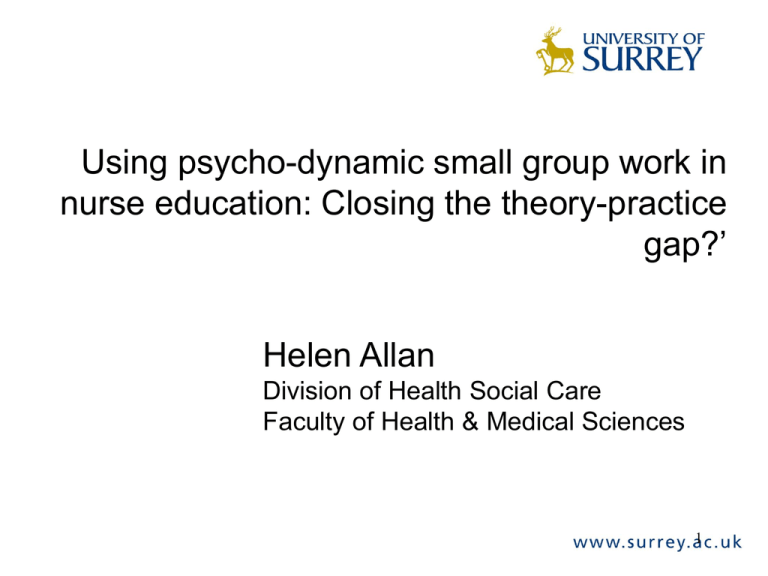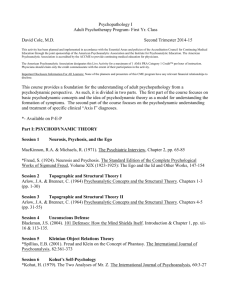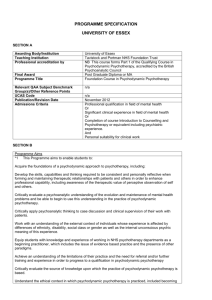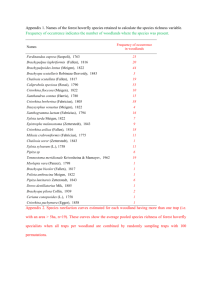Closing the theory
advertisement

Using psycho-dynamic small group work in nurse education: Closing the theory-practice gap?’ Helen Allan Division of Health Social Care Faculty of Health & Medical Sciences 1 Aim • Illustrate the role of psychodynamic small group work in integrating theory and practice for nursing students Background • Menzies-Lyth – The nurse-patient relationship changes ‘ordinary’ social relationships and there is a need to manage the intimate and emotional nature of these clinical, ‘non-social’ relationships. • Fabricius – As well the clinical dimension of care, there are the social and emotional processes at work in interactions with patients. The psychodynamic approach • Psychodynamic model – emotions shape our being in the world and reactions to the world • Small group work can help nurses and doctors work therapeutically through reflection and learning from reflection – Balint; Menzies; Tavistock Clinic – Peplau; – Gilmartin 2008; Ashburner et al 2004; Clifford 2004 4 Psychodynamic approach to emotions • The study of the psychological forces that underlie human behavior, which emphasises the interplay between unconscious and conscious motivation (Brown & Pedder 1991) 5 Personal experience as a tutor • Participated in small group work as a tutor run by Julia Fabricius – Fabricius J (1991a) Learning to work with feelings — a psychodynamic understanding and small group work with junior student nurses. Nurse Education Today 11,134–42. – Fabricius J (1991b) Running on the spot or can nursing really change? Psychoanalytic Psychotherapy 5, 97-/108. – Fabricius J (1995) Psychoanalytic understanding and nursing: A supervisory workshop with nurse tutors. Psychoanalytic Psychotherapy 9, 17–29 My experience with personal tutees • Small group supervision – Meeting regularly, bringing clinical material – Staying with the emotions – Managing emotions to help them learn – Support to help them learn – Containing to help them learn 7 Presentation of some supervision material Clinical material is brought to supervision sessions by students Reflected on in the supervision Reflected on by the supervisor afterwards Journaling to help reflection 8 Using small group work to integrate the T/P Gap • The theory practice gap can sometimes feel like a fact of nursing life; it exists but of course each of us reproduces it in our teaching (as I have show) and in our practice (as the material described here shows). Using small group work to integrate the T/P Gap (cont’d.) • It is possible to integrate theory and practice for our students and ourselves if we reflect and recognise the split and projection by working psychodynamically. • By integrating theory and practice internally, it may be possible to integrate at the structural level also. Conclusions • Of course, such work needs training and an acceptance that working with feelings is firstly, possible and secondly, desirable; I say this as resistance to participating in small groups has been well described in the literature (Ashburner et al 2004;Fabricius 1995;Gilmartin 2008). Conclusions (cont’d.) • Arranging meetings once in placement – Large cohorts means groups divided and personal tutor groups not part of same curriculum group – Geography – Financial – Resistance • Less with students than trained staff 12











